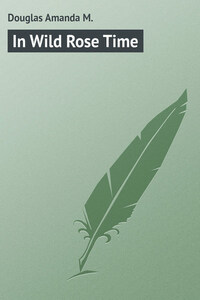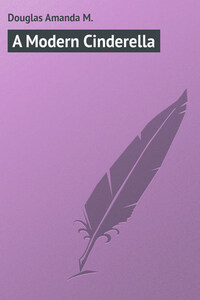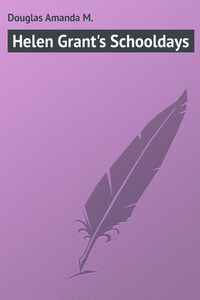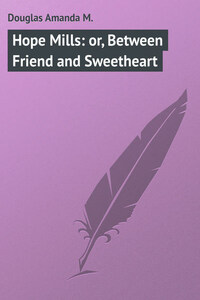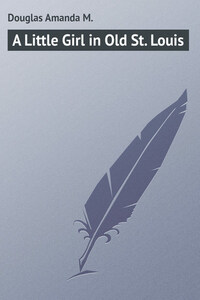“Hev a bunch o’ roses, mem? Fresh wild roses with the dew on ’em. Jes’ picked. On’y ten cents.”
They dropped in at the open window, and landed on Virginia Deering’s lap. Her first impulse was to throw them out again, as she half said to herself, “I hate wild roses, I always shall!” But she glanced down into such a forlorn, wistful face, that her heart was touched, a not unkindly heart, though it had been bitter and obdurate with the unreason of youth.
“Oh, please buy ’em, mem. Mammy’s sick and can’t do nothin’, an’ Ben’s got a fever. On’y ten cents.”
The poor child, in her ragged dress, was clean enough. Her face had a starved, eager look, and the earnest pleading in the eyes bespoke necessity seldom counterfeited. Miss Deering opened her pretty silver-clasped purse and handed out a quarter.
“All of it?” hesitatingly. “Oh, thanky, thanky! We’d sold the chickens, and everything we could, and Ben said city folks was fond of wild-flowers.”
The whistle blew. There was a groan and quiver as the train began to move, that drowned the child’s gratitude. Miss Deering laid the roses on the seat beside her with a curious touch, as if she shrank from them. An hour or two ago she had started on her journey, leaving behind her a sweet dream of youth and love and roses. In twenty-four hours the brightness of her life had been swept away. The summer day wore a dulness she had never seen before.
She was a handsome young girl, with a fine complexion, light, silken soft hair, and very dark gray eyes. A modern, stylish girl, who had not yet reached the period when one begins to assert her right supreme over the world and all that therein is.
She peered at the newcomers at the next station. No one wanted the seat, however. The sweet wild roses, in all their shell-like transparency, lay unheeded, drinking up the dewy crystal drops that had been showered by mortal hands, as well as dusky-fingered night. You would have said she had a tender side, that could be keenly moved by beauty. Perhaps that was why she glanced out of the window on the whirling sights. She might have vaguely wondered if she had been so utterly right yesterday – was it yesterday, or a month ago?
She took up her book, but it had lost its interest. The delicate fragrance of the roses disturbed her – stirred a gust of feeling that she had fancied securely laid. If he had cared, he would have come last night; he would have seen her this morning at the station. She had felt so strong, so justified in her own sight, and such a simple thing as a beggar with wild roses had disturbed it all.
There were not many people coming in town. She glanced about – one and another had bunches of flowers, flaunting scarlet geraniums and modern things. Very few people cared for wild roses, unless they were worked in table-scarfs or painted on china. Ah, how the tender little buds crept closer to each other! The pink, shell-like leaves of the mothers drooped tiredly, the soft green huddled about with a kind of frightened tenderness, as if they might be going out in a strange, unfriendly world. She turned her eyes away with a betraying mistiness in them.
They came into the great station, but this was not the hour for crowds. She picked up her satchel, her book – should she leave the roses to the mercy of the sweeper? Something throbbed up in her throat, she gathered them with a desperate grasp, threaded her way through the great enclosure, and passed out into the street amid a babel of voices.
A group of ragged urchins stood eager for a chance to seize a valise or parcel, to the relief or disgust of its owner.
“Who wants some flowers?” bethinking herself suddenly of the flower charities.
They thronged round her. She threw the bunch with a light effort just beyond the first noisy ring. A shock-headed lad with a broad, freckled face and laughing blue eyes caught it. Another snatched at it. Thereupon ensued a scrimmage. Blows and tearing of hair were the courtesies exchanged, until a policeman loomed in sight. The first lad was at this moment the victor, and he plunged down the side street with a fleetness known only to the street arab. The majesty of the law distributed cuffs liberally among the vanquished, and the rabble dispersed.
Miss Deering smiled with a touch of sad scorn, nodded to a cabman, and, as she seated herself, watched the fleet but dirty feet vanishing in the distance, recalling the face.
“It’s curious they, too, should quarrel about wild roses,” she said, just under her breath, sighing softly.
Meanwhile Patsey Muldoon ran some ten or twelve squares, then paused for a bit of breath, mopping his face with his ragged shirt sleeve.
“My, ain’t they queer? not stunners exactly, but splendid, if they ain’t red. I d’know as Dil ever see sich a swad in her life. An’ Bess’s blue eyes’ll be like saucers. Oh, golly! how sweet!” burying his face in them. “Sich as these ain’t layin’ loose round Barker’s Court offen. I’ve lost a job mebbe, an’ Casey’ll crow if he gits one; but that ere left-hander wos science, that wos!” and the boy chuckled as he ran on again.
